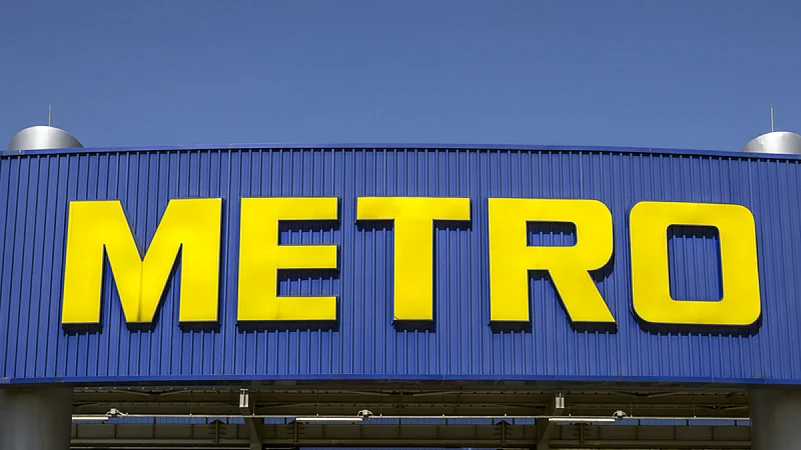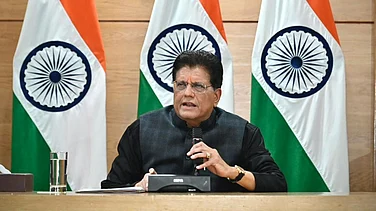Gautam Adani and Mukesh Ambani, India’s two richest men, are gearing up for a direct battle to corner India’s retail space with the partial or full acquisition of retail chain Metro Cash & Carry.
Quoting industry sources, media reports have said that both Reliance Industries and Adani Enterprises are interested in Metro Cash & Carry, its 31 outlets, and 5,000 employees being offered at a valuation between $1 billion and $1.75 billion.
The company had invested €250 million since it entered India in 2003 and was planning to expand its portfolio by opening 150 new outlets by asking the parent company, Germany-headquartered Metro AG, to invest another $400 million in the Indian business. However, tough market competition with the presence of the likes of Reliance Jio Mart, D-Mart, Amazon India, and Walmart India, and dwindling balance sheets are forcing it to look at other options.
Metro Cash & Carry, which had clocked $898 million in revenue in FY21, has reportedly approached 20 Indian companies to invite bids. Apart from Reliance Industries and Adani Enterprises, players like Amazon, Walmart, Tata Group, Udaan, Avenue Marts (D-Mart), Swiggy, and Thailand-based Charoen Pokphand (CP) are also in the race to acquire Metro Cash & Carry, say reports.
Clash Of The Titans
If reports are to be believed, this would possibly be the first time Ambani and Adani would be meeting each other head-on over a deal. It is India’s $900-billion retail market, expected to grow to $1.5 trillion by 2030 as per the India Brand Equity Foundation, which is beckoning two of the country’s biggest tycoons this time. Naturally, the stakes are high.
Both Adani and Ambani are known to have a never-say-die attitude when it comes to scouting and sealing deals that would help them diversify.
Over the last few years, the Adani Group has diversified beyond its core business of operating ports, power plants and coal mines into airports, data centres and clean energy. Through all his moves, Adani has made one thing clear: he is relentless. For instance, after taking the management control of Mumbai International airport last year, the Adani group became the largest private airport operator in the country with seven out of the eight public-private partnership airports under its belt now.
Recently, the group clinched a deal to acquire a controlling stake in Holcim Ltd's businesses in India for $10.5 billion, marking the ports-to-energy conglomerate's entry into the cement sector. With that, it acquired 63.1 per cent of Ambuja Cements Ltd along with related assets.
The Metro Cash & Carry acquisition will help the group expand its portfolio into the retail segment, currently limited to Fortune Mart which sells Adani Wilmar products and Kohinoor, a basmati rice brand. Adani Wilmar, a joint venture between Adani Enterprises and Singapore-based Wilmar International, had posted a net profit of Rs 803.73 crore in FY22. However, the Russia-Ukraine war, a ban on palm oil exports by Indonesia among other things have impacted the sale of the company’s flagship Fortune Oil and other products. The inroads into India’s retail sector will give Adani Group an opportunity to tap into the country’s lucrative retail market.
On the other hand, Ambani is already an established player in the retail space with brands like Reliance Fresh, Reliance Retail, Jio Mart, and the 800-odd stores that the company took over from Future Retail. In a recent report, research firm Bernstein said that Reliance Retail is India's largest organised retailer both in terms of revenue and store network with 14,412 stores in India spread over 40 million square feet. Its revenue has grown 5x in the last five years with its core retail revenue of $18 billion being greater than competitors combined. The company, along with the US-based firm Apollo Global Management, had also made a bid to acquire Boots, a UK-based retail and pharmacy chain.
If Reliance Industries bags the deal, the company will have another flagship retail brand to solidify this lead.
And analysts are optimistic. Reliance Retail, which grew its retail footprint by 39 per cent (in square feet) since the pandemic, added multiple brands, and expanded its digital commerce, will further swell its network, the Bernstein report said.
Notably, Reliance Retail had clocked a gross revenue of Rs 2 lakh crore last year, posted a profit of Rs 7,055 crore and had added more than 2,500 new retail stores to its retail empire.
This clash between a refined retail player and a new but fierce competitor would be an interesting one.
Dealing With Déjà Vu
The other big player in the race, as per reports, is e-commerce giant Amazon. Interestingly, Ambani’s Reliance Industries had locked horns with the US-based Amazon over another Indian retail business not so long ago.
Jeff Bezos-led Amazon and Reliance had been engaged in a two-and-a-half-year-long legal battle to acquire Kishore Biyani’s Future Retail stores valued at Rs 24,713 crore.
It had started off in 2019 with Amazon entering a deal with Future Coupon, the promoter of the Future Group, to acquire 49 per cent of the company. It gave the US company an indirect stake of 3.58 per cent in Future Retail as Future Coupons holds a 7.3 per cent stake in the company.
Trouble started brewing in 2020 when the Future Group agreed to sell its retail, wholesale, and logistics business to Reliance Retail. What followed was a slew of court cases, including one in the Singapore International Arbitration Centre (SIAC).
In April this year, Reliance called off its deal with Future Retail after the secured creditors of the latter voted against it. It, however, walked away with at least 875 brick-and-mortar stores of Future Retail which were responsible for 60 per cent of the company’s revenue.

Neither Ambani Nor Adani Like To Lose Corporate Battles; Who Will Win Race For Metro Cash And Carry?
Neither Ambani Nor Adani Like To Lose Corporate Battles; Who Will Win Race For Metro Cash And Carry?
Published At:
- Previous Story
 India–US Trade Deal to Be Formalised by Mid-March; Joint Statement Within Days: Piyush Goyal
India–US Trade Deal to Be Formalised by Mid-March; Joint Statement Within Days: Piyush Goyal - Next Story
MOST POPULAR
WATCH
MORE FROM THE AUTHOR
×
























